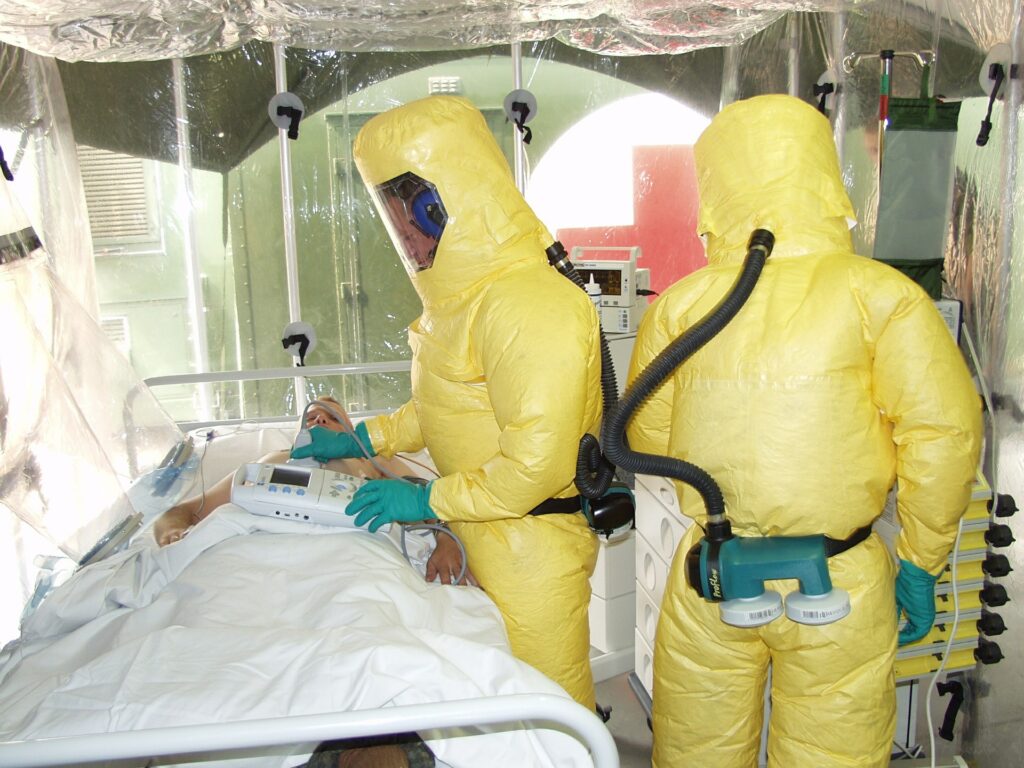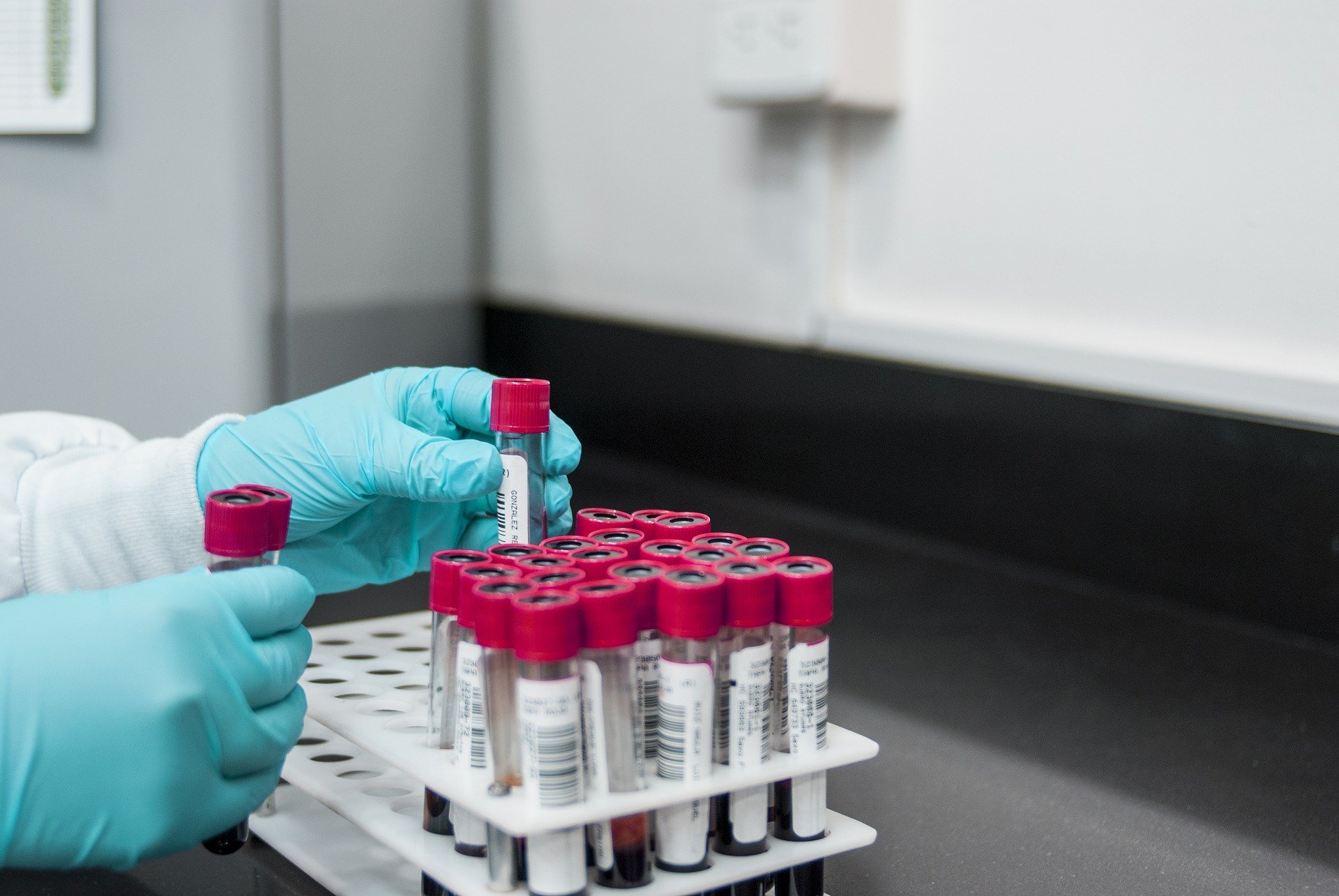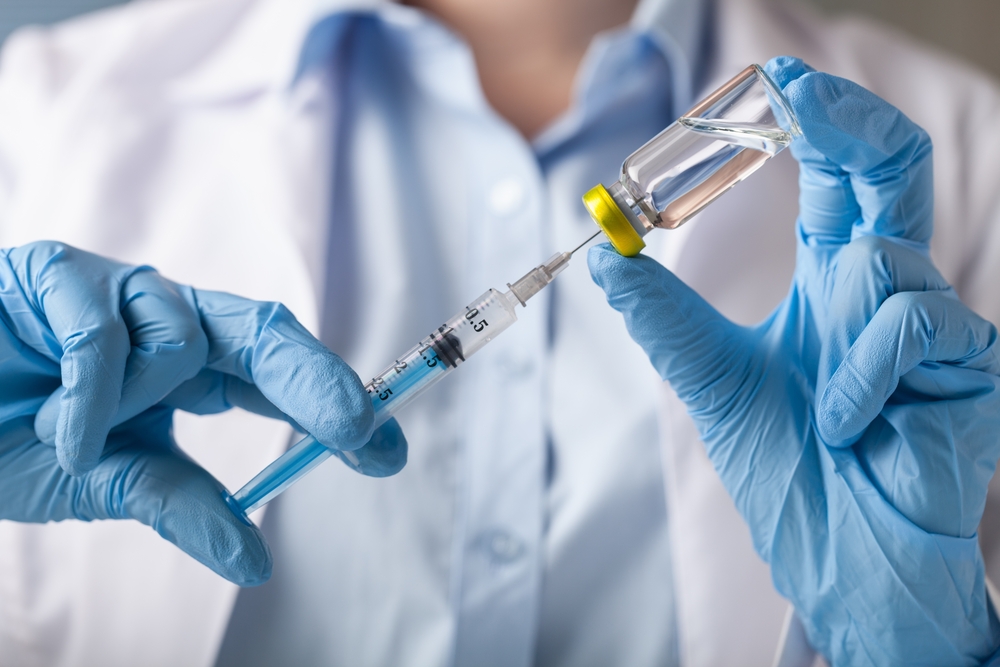The US Food and Drug Administration (FDA) has approved Inmazeb (atoltivimab, maftivimab and odesivimab-ebgn) as the world’s first treatment for Zaire ebolavirus (Ebola virus) infection in adult and pediatric patients, including newborns of mothers who have tested positive for the virus. Inmazeb is a combination of three different antiviral monoclonal antibodies.
The drug was developed by biotech company Regeneron Pharmaceuticals, Inc. (NASDAQ: REGN) in response to an Ebola outbreak that spread throughout several West African countries between 2014 and 2016, having the most devastating socioeconomic impacts in Guinea, Liberia and Sierra Leone. However, that outbreak was controlled before Regeneron’s drug could be tested in a clinical trial. A second Ebola outbreak occurred in August 2018 in the Democratic Republic of Congo (DRC), during which evaluation of Inmazeb was initiated in a large-scale clinical trial.
The FDA approval is based on results from the large, multi-center clinical trial called PALM (PAmoja TuLinde Maisha) in which Inmazeb showed superiority over other antiviral investigational agents, namely ZMapp and remdesivir, with respect to mortality.
Inmazeb treatment was found to be most effective when administered early during the course of Ebola infection. Remdesivir was granted emergency use authorization (EUA) in May 2020 by the FDA for the treatment of hospitalized COVID-19 patients with severe disease.
In the Ebola trial, US researchers worked in conjunction with international aid groups and investigators from the DRC to test the drug alongside the other antiviral treatments.
Related: First Ebola Vaccine Cleared by European Commission
“We are incredibly proud that the FDA has approved Inmazeb, which is also known as REGN-EB3. This is the first time the FDA has approved a treatment specifically for Ebola, which has caused a number of deadly outbreaks,” said George D. Yancopoulos, MD, PhD, president and chief scientific officer of Regeneron in a press release from the company.
Zaire ebolavirus, commonly known as Ebola virus, is one of four Ebolavirus species that can cause potentially fatal human disease. Ebola virus is transmitted through direct contact with blood, body fluids and tissues of infected people or wild animals, as well as with surfaces and materials – such as bedding and clothing – contaminated with these fluids. Healthcare workers, and other individuals that provide direct care for people with Ebola virus who do not exercise proper infection control measures, are at the highest risk for contracting the infection.
“Today’s action demonstrates the FDA’s ongoing commitment to responding to public health threats – both domestically and abroad – on the basis of science and data,” said FDA commissioner Stephen M. Hahn, MD in a press announcement from the health agency. “This approval was made possible because of our steadfast dedication to facilitate the development of safe and effective treatments for infectious diseases as part of our vital public health mission.”
Targeted Antiviral Treatment
The three monoclonal antibodies contained in Inmazeb are of similar structure; however, they bind to different, non-overlapping epitopes simultaneously on a glycoprotein found on the surface of the Ebola virus. This glycoprotein interacts with a receptor on human cells to fuse viral and host cell membranes, allowing the virus to enter the cell. The three antibodies therefore work in concert to block attachment and entry of the virus, neutralizing its ability to invade cells in patients, as well as leading to the recruitment of immune cells to target any virally-infected cells in order to remove them.
Inmazeb was developed through Regeneron’s proprietary ‘rapid response’ VelocImmune technology and associated VelociSuite technologies for producing fully human monoclonal antibodies. The technology allows for the efficient generation of a multitude of optimized antibody drug candidates directly from immunized mice. The approach allows for the creation of fully human antibodies that bind with high affinity to therapeutic targets, mitigating potential immune responses that may occur with antibodies that contain nonhuman (typically mouse) components.
REGN-COV2, Regeneron’s investigational COVID-19 antibody combination — which contains two monoclonal antibodies (REGN10933 and REGN10987) — was also designed using the VelocImmune platform.
International Collaboration
“Decades of investment in our VelociSuite rapid response technologies, the dedication of world-class scientists and the courageous contributions of healthcare providers and patients, together with remarkable cooperation between leading international health organizations and governments, have led to this important moment. As we apply the same sophisticated technologies and manufacturing capabilities against COVID-19, we hope this will be one of many demonstrations of how the power of science can be successfully deployed against dangerous infectious diseases,” stated Yancopoulos.
As part of an agreement announced in July 2020, Regeneron will deliver a predetermined number of Inmazeb treatment doses over the course of six years to the Biomedical Advanced Research and Development Authority (BARDA) as part of the US Department of Health and Human Services’ (HHS) goal of building national preparedness for public health emergencies, outlined a Regeneron press statement.
Through the BARDA partnership, Regeneron says it will continue to provide Inmazeb for free in response to outbreaks in the DRC through the Monitored Emergency Use of Unregistered and Investigational Interventions (MEURI) protocol for compassionate use. Regeneron adds that it is “actively working with non-governmental organizations and public health agencies to ensure continued access to Inmazeb in low- and middle-income countries.”
“Since 2015, BARDA has partnered with Regeneron to develop a life-saving treatment for Ebola Zaire. The Food and Drug Administration’s approval of Inmazeb shows the power of public private partnerships to bring forward these critical treatments and improve global public health,” said Gary Disbrow, the Acting Director of BARDA. “BARDA is continuing our collaboration with Regeneron on other life-threatening diseases such as MERS and COVID-19, and we look forward to continued success.”
The PALM Trial
The four-arm, randomized, multicenter, controlled PALM trial was initiated in the DRC in 2018 to evaluate the safety and efficacy of Inmazeb. The WHO, the National Institutes of Health (NIH) and the Institut National de Recherche Biomédicale (INRB) in the DRC jointly sponsored and served as co-principal investigators of the trial.
The trial evaluated the effects of Inmzazeb in 382 adult and pediatric patients with confirmed Ebola virus, of which 154 patients received Inmazeb (50 mg of each monoclonal antibody) intravenously as a single infusion and 168 patients received an investigational control. The primary efficacy endpoint was 28-day mortality. The primary analysis population constituted patients who were randomized and concurrently eligible to receive either Inmazeb or the investigational control during the same trial period.
Of the 154 patients who received Inmazeb, 33.8 percent died after 28 days, compared to 51 percent of the 153 patients who received placebo control. In an expanded access program, an additional 228 patients received Inmazeb.
Results from the trial were published in the New England Journal of Medicine in December, 2019. The PALM trial was stopped early following a prespecified interim analysis that showed superiority of Inmazeb to ZMapp and remdesivir with respect to mortality.
The FDA had granted Inmazeb an Orphan Drug designation as well as a Breakthrough Therapy designation for the treatment of Zaire ebolavirus infection.
In December 2019, the FDA approved Ervebo – the first vaccine for the prevention of Ebola virus disease – based on favorable data from a study conducted in Guinea during the 2014 to 2016 Ebola outbreak.
The approval of the first treatment for Ebola is a significant milestone in combatting the highly virulent disease and any future outbreaks. “Today’s approval highlights the importance of international collaboration in the fight against Ebola virus,” said John Farley, MD, MPH, director of the Office of Infectious Diseases in the FDA’s Center for Drug Evaluation and Research. “The urgent need for advanced therapies to combat this infectious disease is clear, and today’s action is a significant step forward in that effort.”












Join or login to leave a comment
JOIN LOGIN